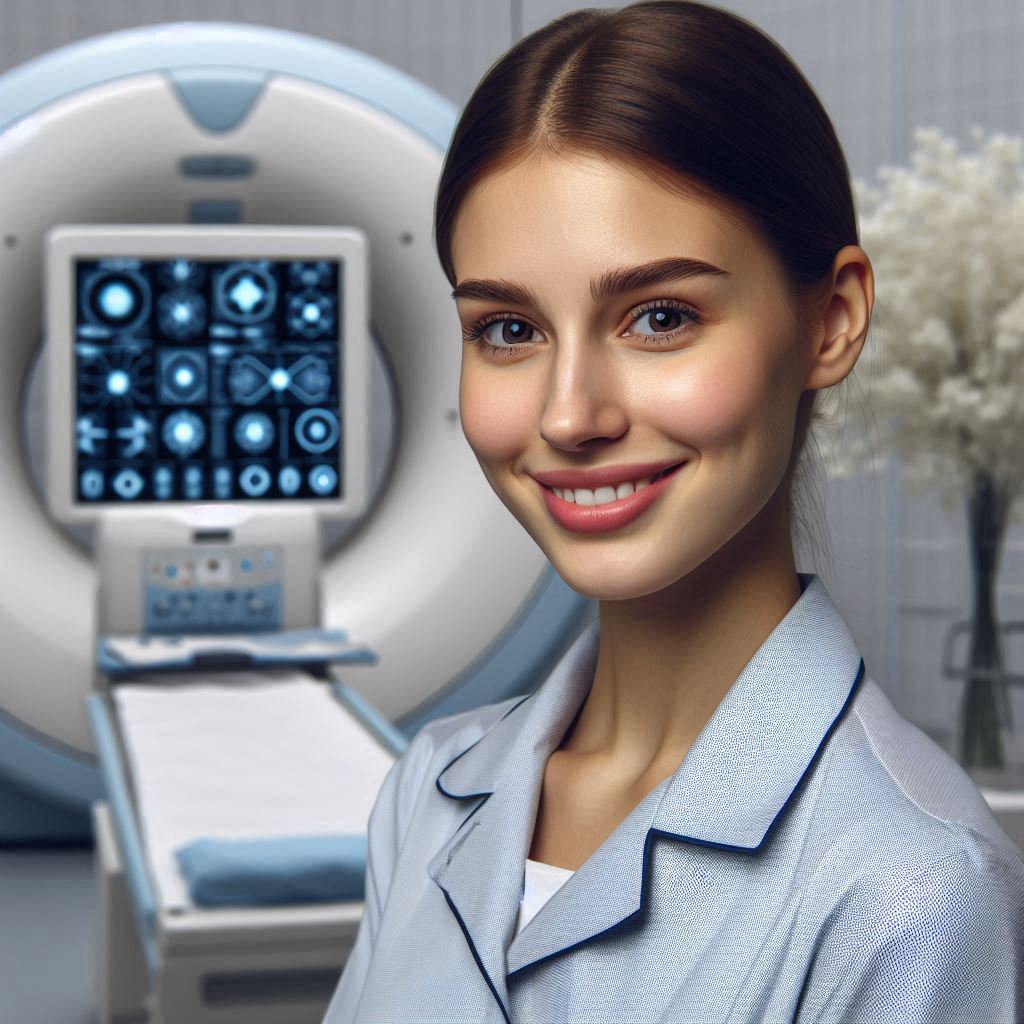Introduction
Sleep technologists play a pivotal role in the healthcare field, specializing in the diagnosis and treatment of sleep disorders.
Their primary responsibility involves conducting and analyzing sleep studies to monitor patients’ sleep patterns and behaviors.
By using sophisticated equipment like polysomnography machines.
They collect comprehensive data that aids physicians in accurately diagnosing conditions such as sleep apnea, insomnia, restless legs syndrome, and narcolepsy.
The educational requirements for individuals pursuing a career in sleep technology are of utmost importance.
These requirements ensure that technologists are well-prepared to perform their duties competently and ethically.
Formal education programs teach aspiring technologists sleep physiology, patient care, and interpreting sleep study results.
This knowledge is essential for delivering accurate diagnoses and effective treatment recommendations.
Accredited educational programs emphasize hands-on experience and theoretical knowledge.
Preparing technologists to handle the complexities of sleep disorders with confidence.
Meeting educational standards enhances patient care quality and ensures sleep technologists contribute effectively to healthcare teams.
Therefore, a robust educational foundation is essential for anyone aspiring to excel in the field of sleep technology.
Educational Pathways
When considering a career as a sleep technologist, there are various educational pathways that individuals can pursue to enter this field.
Different Educational Pathways That Can Lead To A Career As A Sleep Technologist
These pathways include vocational schools, community colleges, and universities. Offering unique advantages and opportunities for aspiring sleep technologists.
Vocational Schools
- Vocational schools provide specialized training in sleep technology.
- They offer hands-on experience and practical skills necessary for the job.
- Programs at vocational schools are typically shorter in duration.
Community Colleges
- Community colleges offer associate degree programs in sleep technology.
- These programs provide a more comprehensive education in sleep disorders.
- Students can gain clinical experience through partnerships with local healthcare facilities.
Universities
- Universities provide bachelor’s degree programs in sleep science or related fields.
- These programs offer a broader understanding of sleep disorders and their impact on health.
- Students have opportunities for research and advanced study in the field.
Importance of choosing an accredited program to ensure quality education.
Regardless of the educational pathway chosen, it is crucial for individuals to select an accredited program.
Accreditation ensures that the program meets established standards of quality and provides students with a solid foundation in sleep technology.
Accredited programs also often have partnerships with professional organizations and healthcare facilities.
Offering students valuable networking opportunities and hands-on training.
Choosing an accredited program is essential for individuals pursuing a career as a sleep technologist.
Accreditation verifies that the program has undergone a rigorous evaluation process and meets or exceeds industry standards.
This ensures that students receive a quality education that prepares them for success in the field.
Certification Requirements
Certification Process for Sleep Technologists
Becoming a certified sleep technologist is essential for demonstrating competence in the field.
The certification process is overseen by the Board of Registered Polysomnographic Technologists (BRPT).
Technologists can pursue different levels of certification based on their education and experience.
The entry-level certification is the Certified Polysomnographic Technician (CPSGT).
To qualify, candidates must complete an accredited sleep technology education program or have equivalent work experience.
The CPSGT exam covers fundamental knowledge and skills in sleep technology.
For those with more advanced training and experience, the Registered Polysomnographic Technologist (RPSGT) certification is available.
This credential requires candidates to meet higher education and clinical experience requirements.
The RPSGT exam assesses comprehensive knowledge and proficiency in conducting and interpreting sleep studies.
Obtaining certification demonstrates a technologist’s commitment to maintaining high standards of patient care and professional competency.
It validates their ability to accurately monitor and analyze sleep data, diagnose sleep disorders, and recommend appropriate treatments.
Importance of Obtaining Certification
Certification plays a crucial role in the career of a sleep technologist.
It enhances credibility and marketability in the job market, increasing opportunities for career advancement and higher salaries.
Many employers prioritize hiring certified technologists to ensure quality patient care and compliance with industry standards.
Certified technologists are equipped with the knowledge and skills necessary to deliver effective care and contribute to interdisciplinary healthcare teams.
They stay updated with advancements in sleep medicine through continuing education.
Maintaining their certification status through ongoing learning and professional development.
Patients benefit from certified sleep technologists who adhere to rigorous standards of practice and ethical guidelines.
Certification assures patients that technologists possess the expertise needed to conduct accurate sleep studies and provide comprehensive care for sleep disorders.
In summarize, certification through the BRPT is a significant achievement for sleep technologists, validating their competence and dedication to the profession.
It establishes credibility, enhances career opportunities, and ensures high-quality patient care.
Technologists pursuing certification demonstrate their commitment to excellence in sleep medicine.
Contributing to improved outcomes for individuals experiencing sleep disorders.
Read: Benefits of a Career as an Ultrasound Technician
Required Courses
Specific courses that are typically included in sleep technology programs, such as anatomy and physiology, sleep disorders, and polysomnography
In sleep technology programs, students delve into crucial subjects like anatomy and physiology.
These courses lay the foundation for understanding the human body’s sleep mechanisms.
Detailed exploration of sleep disorders is another cornerstone. Students learn to identify and classify various sleep disorders, from insomnia to sleep apnea.
Polysomnography, the core diagnostic tool in sleep technology, is extensively covered.
Students master the art of conducting and interpreting sleep studies using polysomnographic equipment.
The hands-on training and clinical experience that students receive during their education.
Hands-on training is integral to the curriculum. Under the guidance of experienced instructors, students practice setting up polysomnography equipment.
Clinical experience is paramount in sleep technology education.
Students participate in supervised sleep studies in real-world settings, applying their knowledge in practice.
They learn to monitor patients overnight, observing sleep patterns and detecting abnormalities.
This direct exposure prepares them for the challenges of the field.
Interpretation of sleep study results is a key skill developed during training. Students analyze data to produce accurate reports for healthcare providers.
In addition to technical skills, communication skills are honed.
Students learn to interact with patients, explaining procedures and ensuring comfort during sleep studies.
Professional ethics and standards are also emphasized. Students understand the importance of patient confidentiality and maintaining high standards of care.
Transform Your Career Today
Unlock a personalized career strategy that drives real results. Get tailored advice and a roadmap designed just for you.
Start NowThroughout the program, students are evaluated on their competence in both theory and practical skills.
Assessments ensure they meet the rigorous standards set by accrediting bodies.
In summary, educational requirements for sleep technologists are comprehensive and hands-on.
Courses in anatomy, physiology, sleep disorders, and polysomnography provide a solid academic foundation.
Hands-on training and clinical experience prepare students to excel in conducting and interpreting sleep studies.
This holistic approach equips sleep technologists with the skills and knowledge needed to make a difference in the field of sleep medicine.
Read: Ultrasound Technician vs. Radiologic Technologist
Prerequisite Knowledge
Before enrolling in a sleep technology program, it is important for students to have certain prerequisite knowledge and skills.
These requirements serve as a foundation for success in both education and career in the field of sleep technology.
Prerequisite Knowledge and Skills for Sleep Technology Programs
Before enrolling in a sleep technology program, prospective students should possess certain prerequisite knowledge and skills to succeed in the field.
A background in healthcare, such as nursing or respiratory therapy, provides foundational understanding of patient care and medical terminology.
Experience in related fields, such as psychology or biology, also offers valuable insights into human physiology and behavior.
These prerequisites prepare students to grasp complex concepts in sleep science, including neurology, respiratory physiology, and sleep disorders.
Familiarity with healthcare settings cultivates professionalism and familiarity with ethical standards and patient confidentiality.
Proficiency in critical thinking and problem-solving aids in interpreting sleep study results accurately and identifying abnormalities indicative of sleep disorders.
Importance of Prerequisite Requirements in Education and Career Success
Having prerequisite knowledge and skills enhances students’ readiness for rigorous sleep technology programs.
Understanding healthcare fundamentals allows students to navigate clinical settings confidently, interacting with patients and healthcare professionals effectively.
This background fosters a holistic approach to patient care, prioritizing safety and ethical practice.
Students with prior healthcare experience or related education grasp sleep technology concepts more readily.
Integrating theoretical knowledge with practical application.
They contribute to collaborative healthcare teams, communicating findings and recommendations clearly to physicians and colleagues.
This interdisciplinary competence supports accurate diagnosis and comprehensive treatment planning for patients with sleep disorders.
Moreover, prerequisite requirements ensure students meet industry standards and regulatory expectations in sleep medicine.
Compliance with educational prerequisites reflects commitment to professional development and lifelong learning.
It prepares graduates for certification exams administered by the Board of Registered Polysomnographic Technologists (BRPT), validating their competency in the field.
In short, prerequisite knowledge and skills are essential for students entering sleep technology programs.
Healthcare backgrounds or related experiences provide a solid foundation for understanding sleep science and delivering quality patient care.
These requirements promote success in education and career advancement.
Empowering technologists to make meaningful contributions to sleep medicine and enhance patient outcomes through specialized expertise and compassionate care.
Read: Continuing Education for Surgical Technologists: Why It Matters

See Related Content: Best Respiratory Therapy Programs in the USA
Find Out More: Technological Advances in Perfusion: What to Know
Continuing Education
Continuing education is vital for sleep technologists to stay up-to-date with advancements in the field.
It is important to continuously learn and grow to provide the best care for patients and ensure professional competence.
Importance of continuing education for sleep technologists to stay current with advancements in the field.
Continuing education is crucial for sleep technologists to stay abreast of advancements. The field of sleep medicine is dynamic and rapidly evolving.
New research findings and technological innovations constantly shape practices.
Continuous learning ensures technologists can apply the latest knowledge and techniques.
Staying current enhances diagnostic accuracy and patient care. Technologists can implement state-of-the-art protocols for sleep studies and treatment monitoring.
Professional development also fosters career growth and job satisfaction.
It opens opportunities for specialization in emerging areas like pediatric sleep disorders or advanced polysomnography techniques.
Available Resources For Ongoing Professional Development
The available resources for ongoing professional development, such as conferences, workshops, and online courses.
Conferences play a pivotal role in professional development.
Events like the Annual Sleep Meeting by the American Academy of Sleep Medicine offer lectures, workshops, and networking opportunities.
Workshops provide hands-on training in new methodologies and equipment.
Technologists can practice skills under expert guidance, enhancing their proficiency.
Online courses are flexible options for learning.
Platforms like Sleep Education by the American Academy of Sleep Medicine offer webinars and self-paced modules on diverse topics.
Professional organizations also offer certifications and recertification programs.
These credentials validate expertise and signify adherence to high standards in sleep technology.
Showcase Your Business Today
Reach thousands of readers actively exploring professional services. Publish your business profile and grow your audience now.
Publish NowNetworking through professional associations is invaluable.
Technologists exchange knowledge, share best practices, and collaborate on research initiatives.
In general, continuing education is indispensable for sleep technologists.
Access to conferences, workshops, online courses, and professional networks ensures ongoing learning and advancement in the field.
By staying informed and skilled, technologists uphold excellence in patient care and contribute to the evolving landscape of sleep medicine.
Read: Surgical Technologist Job Outlook: Demand and Opportunities
Skills Development
Key Skills Essential for Success as a Sleep Technologist
Success as a sleep technologist hinges on mastering key skills that are integral to the role.
Attention to detail is crucial for accurately applying sensors and monitoring patient data during sleep studies.
Critical thinking enables technologists to analyze complex sleep patterns and detect abnormalities indicative of sleep disorders.
Effective communication is essential for interacting with patients, explaining procedures, and collaborating with healthcare teams.
Tips for Developing and Enhancing Key Skills During Education and Training
Attention to Detail
- Practice meticulous sensor placement and data recording during lab simulations.
- Review sleep study results systematically to identify subtle changes and patterns.
Critical Thinking
- Engage in case studies and discussions to analyze various sleep disorders and treatment approaches.
- Seek opportunities to interpret sleep data independently and compare findings with peers.
Effective Communication
- Participate in role-playing exercises to improve patient interaction and explanation of procedures.
- Collaborate with classmates on team projects to practice conveying findings and recommendations clearly.
Time Management
- Prioritize tasks during clinical rotations to optimize workflow and meet study objectives.
- Set realistic goals for completing assignments and preparing for exams to manage workload effectively.
Technical Proficiency
- Familiarize yourself with different types of sleep monitoring equipment and software used in sleep studies.
- Attend workshops or training sessions to stay updated with technological advancements in sleep medicine.
Interpersonal Skills
- Develop empathy and sensitivity when interacting with patients experiencing sleep disturbances.
- Build rapport with healthcare team members to facilitate seamless collaboration and patient care.
By actively cultivating these skills throughout their education and training.
Aspiring sleep technologists enhance their readiness to excel in the dynamic and demanding field of sleep medicine.
Continuous practice and self-assessment contribute to professional growth and readiness for certification exams, ensuring competency and success in the role.
Conclusion
The educational requirements for sleep technologists are critical for ensuring high-quality patient care and professional advancement in the field.
These requirements equip technologists with the necessary skills and knowledge to accurately diagnose and treat various sleep disorders.
Thereby improving patient outcomes and quality of life.
By completing accredited programs and obtaining certifications.
Sleep technologists demonstrate their commitment to excellence and ongoing professional development.
For those interested in pursuing a career in sleep technology, researching accredited educational programs and certification options is essential.
These programs provide comprehensive training in sleep study procedures, patient care, and the interpretation of sleep data.
Certification demonstrates competency and enhances career opportunities within the healthcare industry.
Ultimately, investing in a solid educational foundation prepares future sleep technologists to meet the challenges of diagnosing and managing sleep disorders effectively.
By choosing reputable programs and pursuing certification.
Individuals can embark on a rewarding career path dedicated to improving sleep health and overall well-being.
[E-Books for Sale]
The Big Book of 500 High-Paying Jobs in America: Unlock Your Earning Potential
$19.99 • 500 High-Paying Jobs • 330 pages
Explore 500 high-paying jobs in America and learn how to boost your career, earn more, and achieve success!
See All 500 High-Paying Jobs of this E-Book
1001 Professions Without a Degree: High-Paying American Jobs You Can Start Now
$19.99 • 1001 Professions Without a Degree • 174 pages
Discover 1001 high-paying jobs without a degree! Unlock career tips, skills, and success strategies for just $19.99!




